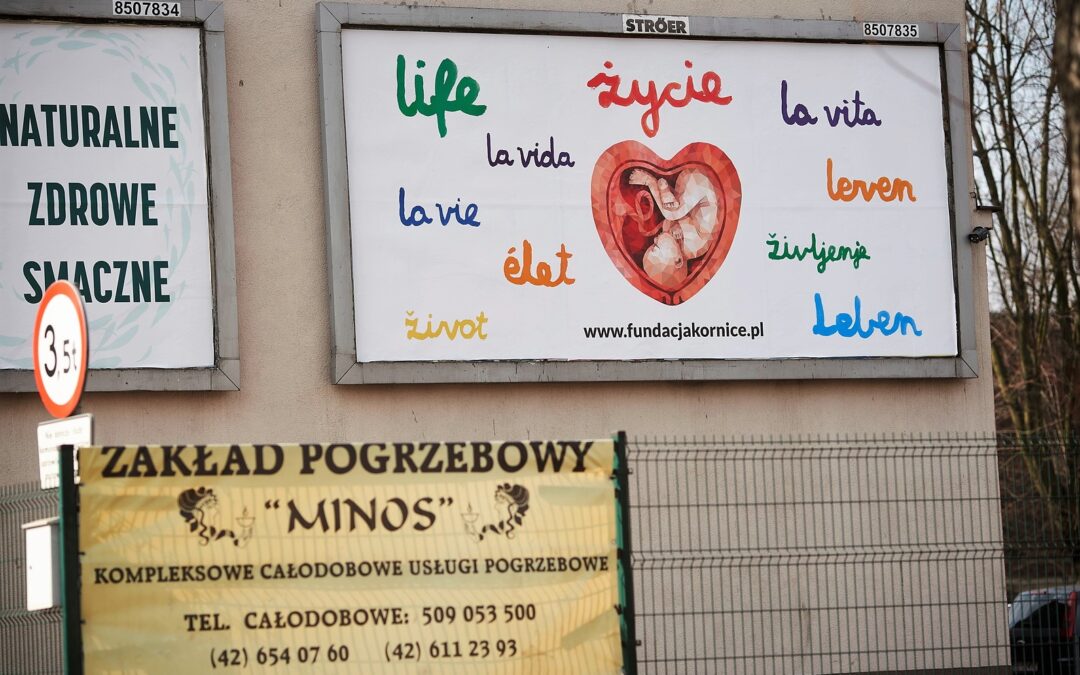Police have appealed for help identifying the mother of a foetus that was found in a sewage treatment plant. Meanwhile, prosecutors have opened an investigation to determine if anyone assisted the woman in terminating her pregnancy, which would be a crime.
“We appeal to anyone who recently noticed that a woman who was previously pregnant no longer has a child…for any information that could help us establish the identity of the mother,” said Katarzyna Mazurek, police spokeswoman in the town of Ząbkowice Śląskie, southwest Poland.
Pro-choice activists have, however, described the authorities’ actions as a “witch-hunt” for a woman who has likely had a traumatic experience and is herself not suspected of doing anything illegal.
The discovery was made on Saturday evening by a worker at the sewage treatment plant, who was conducting checks after heavy rainfall. When he realised that what he found could be a human foetus, he contacted the police.
Initial investigations determined that the foetus was 18-22 weeks old, but the cause of death was not established. Although Poland has one of Europe’s strictest abortion laws, a woman who has a miscarriage – either naturally or intentionally induced – cannot be held criminally responsible.
However, an investigation has been initiated into whether anyone “persuaded the pregnant woman to terminate the pregnancy against the provisions of the law or provided her with assistance in this regard”, Tomasz Orepuk, spokesman for the Świdnica district prosecutor’s office, told Onet.
“The miscarriage could have happened naturally…and the foetus was flushed down the toilet,” Orepuk added, in quotes carried by Gazeta Wyborcza. “But we have to rule out that it was not, for example, caused by a severe beating.”
Article 157a of the Polish criminal code, which protects foetuses’ rights, states that a person “who causes damage to the body of the conceived child… which threatens its life” can face up to two years in prison.
Moreover, according to article 152 of the Polish criminal code, any person (including a doctor) “who with the consent of the woman terminates her pregnancy against the current law” or “aids a pregnant woman in terminating her pregnancy breaking the law” can face up to three years in prison.
Natalia Broniarczyk from Abortion Dream Team, an NGO that helps women obtain terminations, condemned the actions of police and prosecutors as a “a witch-hunt on women who miscarry”.
Any woman who has recently miscarried around Ząbkowice Śląskie would now feel under enormous pressure, she told OKO.press.
The authorities’ “approach shows thinking along the lines: if there is a foetus, there was a crime,” said Karolina Więckiewicz, a lawyer for the same NGO. She warned that forcing a woman who experienced a miscarriage to testify can cause trauma.
Until last year, abortion in Poland was permitted in only three circumstances: if the pregnancy resulted from a crime (such as rape or incest); if it threatened the mother’s life or health; or if a severe birth defect was diagnosed.
However, a ruling by Poland’s Constitutional Tribunal last October – and which went into force in January – deemed terminations carried out under the latter of those three cases to be unconstitutional.
Given that well over 90% of the 1,000 or so abortions carried out legally in Poland each year were due to birth defects, this has resulted in what is effectively a near total ban on abortion in the country. The court’s ruling – which is opposed by a majority of Poles – prompted the largest protests in Poland’s post-communist history.
Main image credit: Marcin Stepien / Agencja Gazeta

Agnieszka Wądołowska is deputy editor-in-chief of Notes from Poland. She is a member of the European Press Prize’s preparatory committee. She was 2022 Fellow at the Entrepreneurial Journalism Creators Program at City University of New York. In 2024, she graduated from the Advanced Leadership Programme for Top Talents at the Center for Leadership. She has previously contributed to Gazeta Wyborcza, Wysokie Obcasy and Duży Format.




















